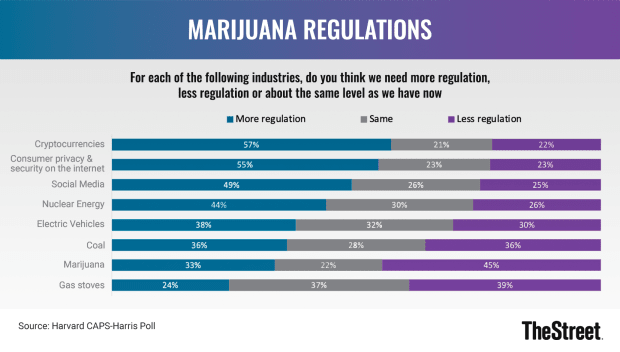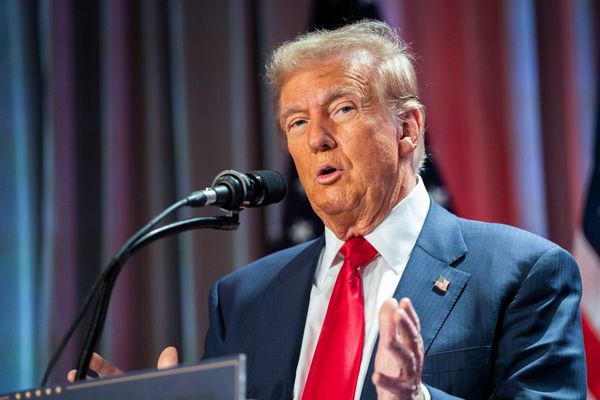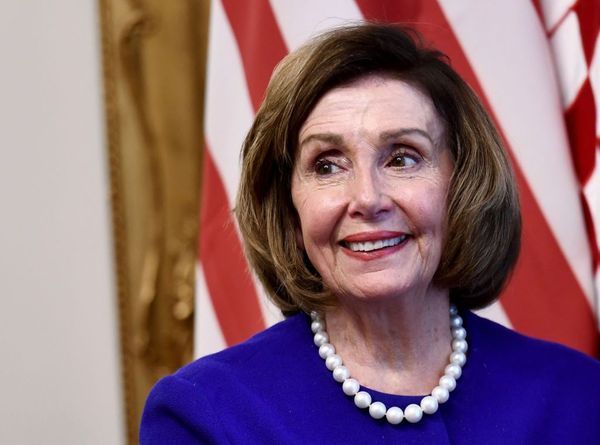
Over the last few years, U.S. regulation of marijuana has become even more of a mixed bag and story of two Americas.
While states like New York, Virginia and New Mexico legalized recreational use in 2021 and started opening dispensaries, the drug remains a Schedule I controlled substance at the federal level and the subject of a political battle as politicians in more conservative states put all of their efforts into nationwide legalization or decriminalization.
"Good smart policies were kept in and unrelated nonsense like easier financing for illegal drugs was kept out," Senate Minority Leader Mitch McConnell (R-KY) said after blocking Democratic attempts to add language related to marijuana banking reform in states where it is legal from a wider defense bill in December.
Regulated Crypto And Teslas Before Cannabis, Say Many
But according to a monthly poll by Harvard's Center for American Political Studies, a majority of people are actually more concerned about regulating cryptocurrency and electric vehicles like Tesla (TSLA) than marijuana -- while 45% of the 2,050 people polled between January 18 and 19 said they'd like to see fewer regulations related to cannabis use and sales, only a respective 30% and 22% said the same for electric vehicles and cryptocurrency.
Perhaps in the wake of the FTX fallout, the highest number of people polled would like to see greater regulation of cryptocurrency -- 57% would like to see more regulation while 23% are fine with the number of laws the U.S. has now.
The number of people seeking better regulation is also high for consumer privacy on the internet (55%), social media (49%), nuclear energy (44%), electric vehicles (38%), and coal (36%). At 33%, marijuana is seventh on the list right above the 24% who would like to see more laws relating to gas stoves.

TheStreet
Should I Be Investing In Cannabis Stocks Right Now?
Depending on where in the country one is, the marijuana market can spell a completely different story. States which legalized long ago, like Colorado, have an oversupply of producers, while New York is working to crack down on the proliferation of unlicensed sales as many wait to receive licenses and for more legal dispensaries to open.
Meanwhile, the police in Kansas recently stormed the hospital room of a terminally ill cancer patient to seize some vaping pens he was using to manage pain.
Over the last year, shares of major U.S.-based cannabis producers like Curaleaf (CURLF) , Green Thumb Industries (GTBIF) , and Trulieve (TCNNF) have all fallen by more than 50% year-over-year amid an explosion of newer players on the market as well as a stabling out of demand after the initial spike that occurs whenever a state moves to legalize.
The constant floundering of even mild regulation attempts like the SAFE Act in Congress have also had their effect on stocks as any kind of federal consensus appears further from the horizon. But even so, the wider arch moves toward a strong and constantly expanding industry -- the U.S. legal marijuana market is predicted to grow from $33 billion in 2022 to $52.6 billion by 2026.
"We are confident about the regulatory tailwinds pushing the U.S. marijuana industry forward [but...] taking a long-term view in the near term, operators face macro pressures, limited funding opportunities, and runaway licensing in some states," Cantor Fitzgerald Analyst Pablo Zuanic tells Benzinga.







